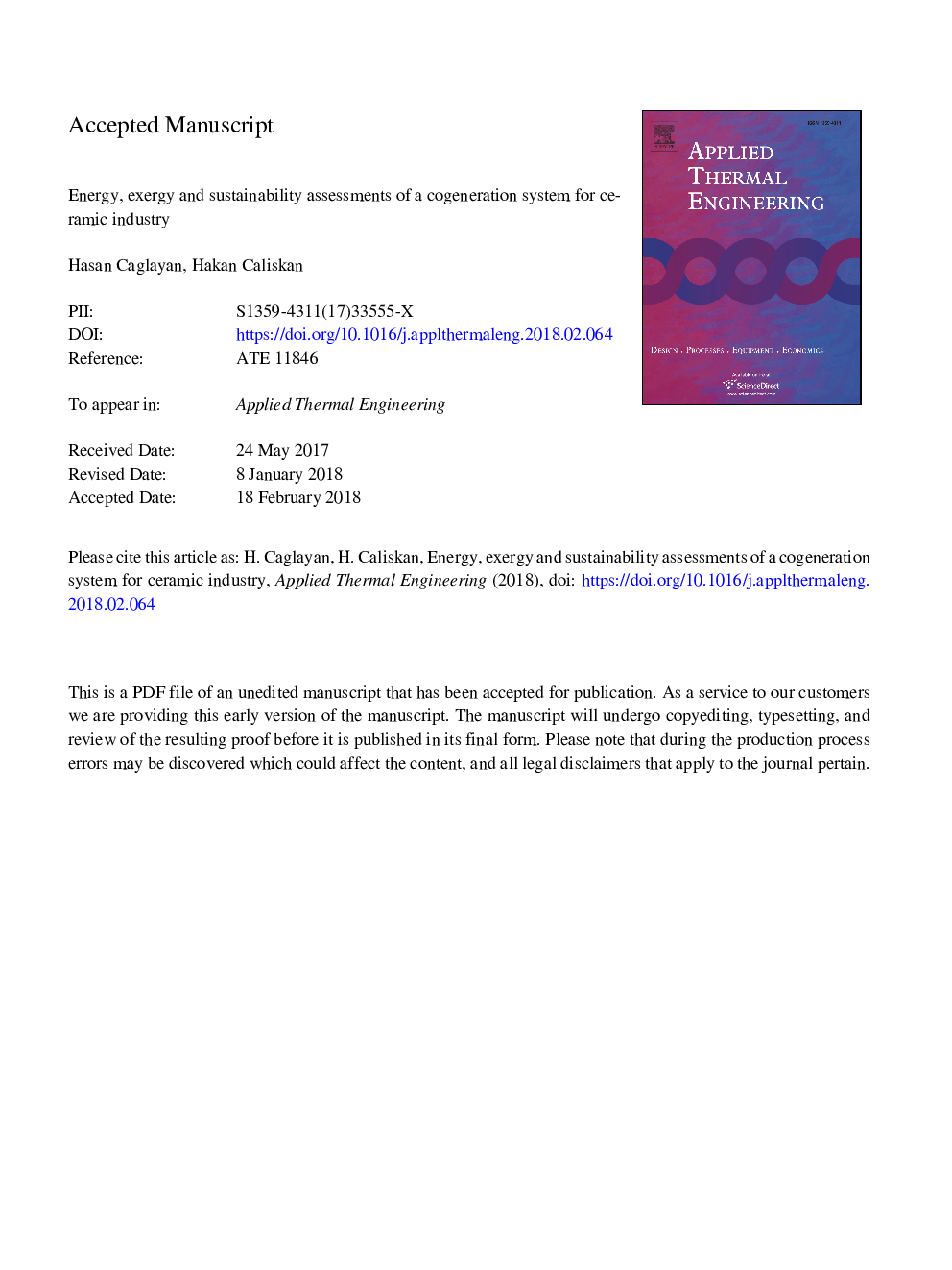| Article ID | Journal | Published Year | Pages | File Type |
|---|---|---|---|---|
| 7045618 | Applied Thermal Engineering | 2018 | 49 Pages |
Abstract
In this study, energy, exergy and sustainability analyses are applied in the ceramic sector to simulate gas turbine based cogeneration plant model. The cogeneration system mainly consists of a proposed gas turbine unit, a wall tile dryer and a ground tile dryer. The energy analysis is performed, and then the exergy and sustainability analyses are applied for the five different dead state (environment) temperatures varying from 10â¯Â°C to 30â¯Â°C (interval of 5â¯Â°C). It is found that the most energy efficient components are determined as the air compressor and combustion chamber, while the minimum one is obtained to be wall tile dryer (7.98%). The maximum sustainability and exergy efficiency (89.46%) are determined for the air compressor as at 10â¯Â°C dead state temperature. The cogeneration (overall) system has 17.51% energy efficiency; while its maximum exergy efficiency is found to be 29.98% at 30â¯Â°C environment temperature. The sustainabilities of the components are also directly proportional to their exergy efficiencies. Furthermore, the utilization of the gas turbine unit included cogeneration system can provide 0.1115â¯m3/s and 0.0732â¯m3/s natural gas saving for the ground and wall tile dryers, respectively.
Related Topics
Physical Sciences and Engineering
Chemical Engineering
Fluid Flow and Transfer Processes
Authors
Hasan Caglayan, Hakan Caliskan,
